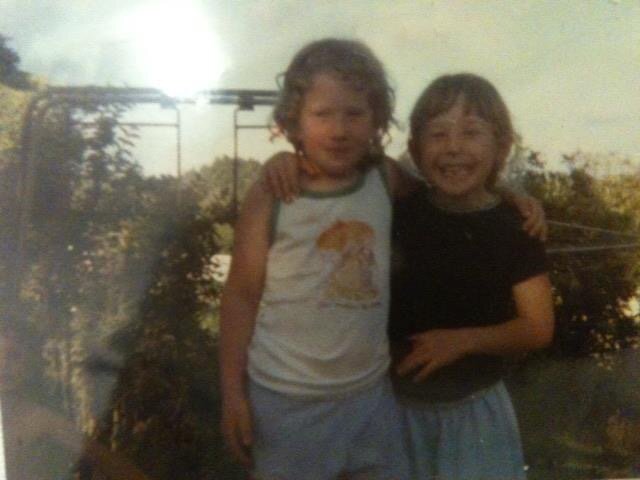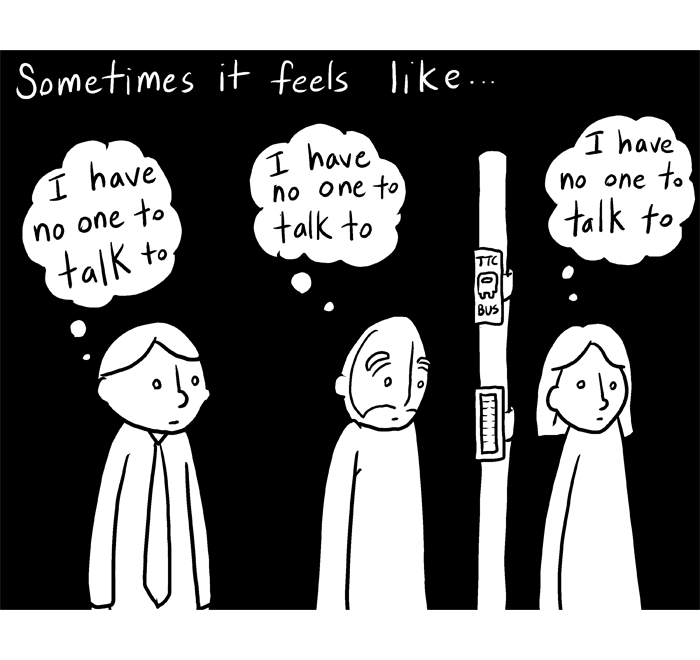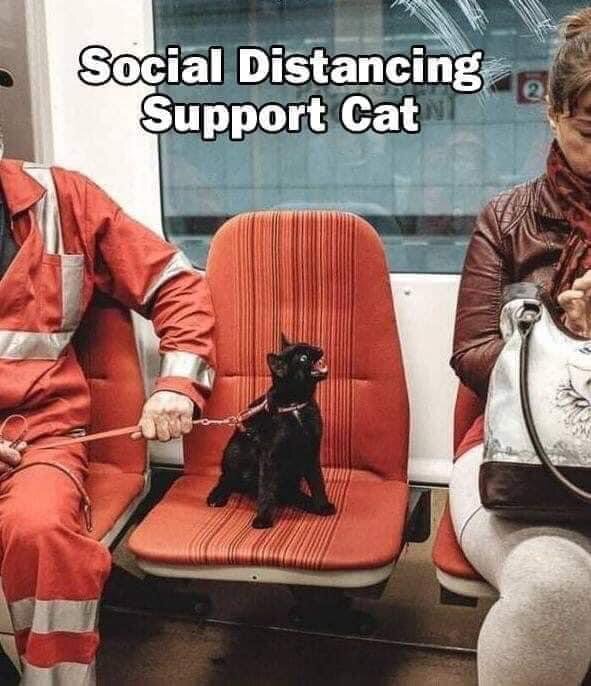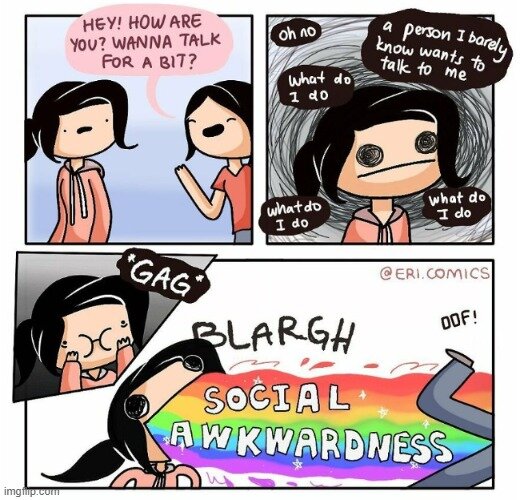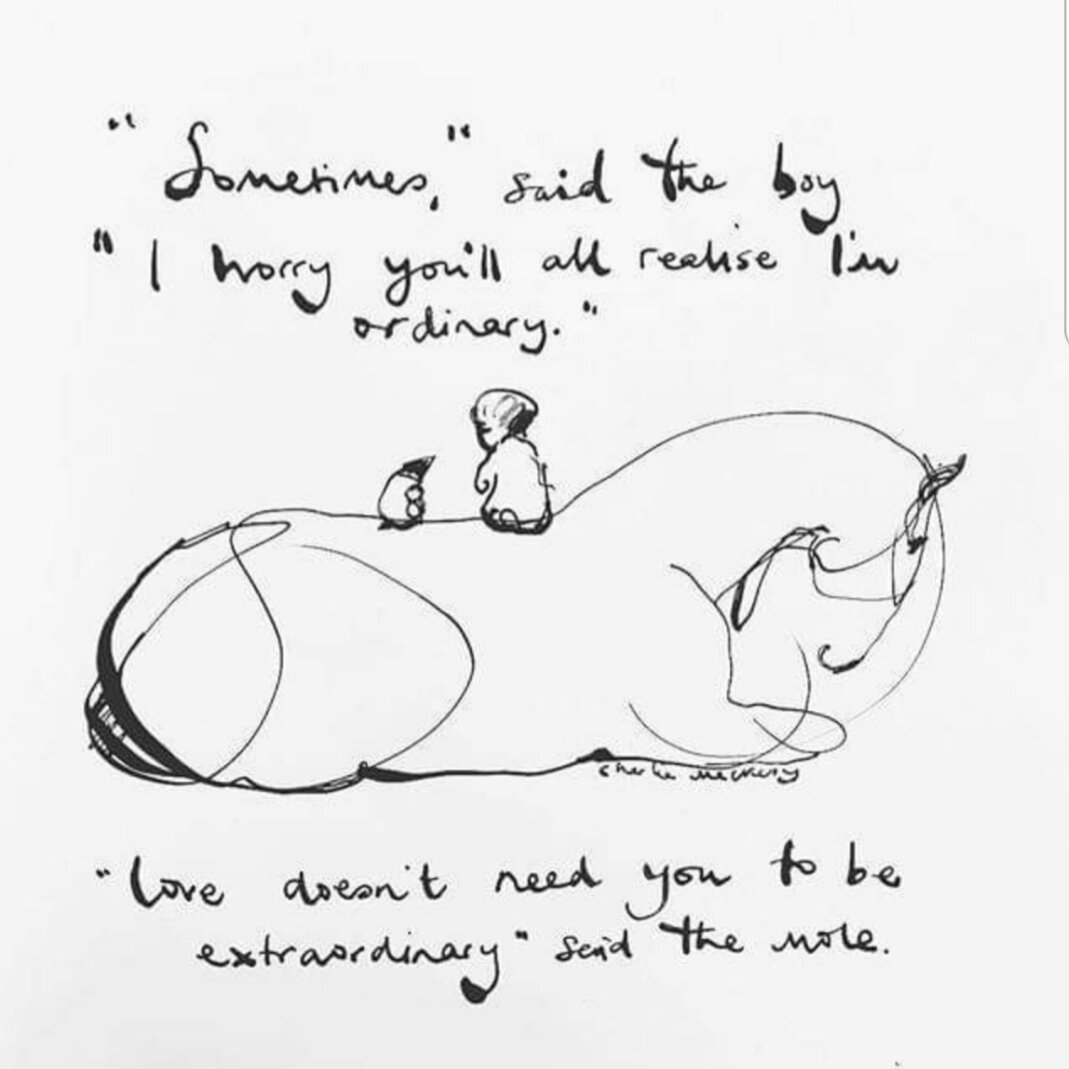When I was younger, making friends was easy. I wasn’t a ‘popular kid’ at school by any stretch of the imagination, but I had my little group of pals, and always had a ‘best friend,’ or two. We would spend all day together, afternoons at one or the other’s house, and then call each other as soon as we reached our separate homes, talk for hours, and leave the phone off the hook when we fell asleep so that when we woke up in the morning, the other would still be there.
If I ever felt lonely as a child, I don’t remember it. Relationships were topsy turvy at times and full of emotion but they were strong, intense, intimate, and far easier to maintain. My early friendships were like love stories, before I learned about the dangers of neediness or coming on too strong.
Me with one of my besties (I’m the rag-tag looking kid on the left)
In my twenties, new cities, new jobs and University came along and new friends with it. Internally, I felt less sure of myself, more socially awkward and more anxious about how I came across to others, but friendships still came easily because I was in close proximity to so many others who were in a similar situation. Circumstances that encouraged bonding – vulnerability, shared intimacy – came along far more often.
As an adult, my old friends are scattered across the globe, and far less available now than they were then. We all have partnerships or families of our own, jobs that take more out of us, commitments, responsibilities. Life is less spontaneous and bonding is a diarised event. Meeting new acquaintances is simple enough, but making new, deeper lasting friendships takes more time and a leap of faith that doesn’t come as easily as it used to. I’ve become one of those people who turns down social invitations with people who I don’t know that well as it all feels like a bit too much effort and I’m so bloody tired most of the time, then walks to the corner store just to see another human.
Image credit: Dilbert comic, by Scott Adams https://dilbert.com/about Twitter: @Dilbert_daily
This year’s theme for Mental Health Awareness Week is ‘Mā te kōrero, ka ora – a little chat goes a long way. It’s about connecting through kōrero and how to make the most of those small interactions that help us to connect with others and alleviate loneliness.
Human connection is so important, and a little chat really does go a long way. But sometimes it’s not so easy. It is perhaps one of the greatest ironies in life that loneliness is such a common emotion. Surely, with so many of us on the planet sharing the same feeling, it ought to be impossible to be truly lonely. And yet, loneliness is prevalent, and takes on many forms. From the loneliness of physical isolation to the loneliness of finding oneself stuck in an experience that feels isolating, even when in the company of others.
It is another of life’s ironies than the lonelier we feel, the more difficult it is to reach out. Feeling lonely can impact our self-confidence regarding our ability to socialise and lead us to withdraw more, which then further fuels our loneliness (further impacting our social self-confidence, and so on).
Image credit - Lunarbaboon http://www.lunarbaboon.com Twitter: @lunarbaboon
This image is part of a series - check the full comic strip out here
What is loneliness?
I doubt that there is a single person reading this blog who could say that they have never felt lonely. Nonetheless, emotions can sometimes be difficult to put into words, and having a framework to describe an emotion such as loneliness can be helpful in order to see that emotion as something outside of ourselves, not an innate part of who we are. Our thoughts and feelings at any given moment are not ‘who’ we are.
The UK’s first report on the psychology of loneliness describes loneliness as a mismatch in needed/desired and actual social interactions. Simply put, loneliness is an emotion that arises when the social life we have is not the social life that we want.
This might come from being alone more often than we would like, from having recently lost a close confidante, from feeling an inability to connect with others as deeply as we would like, or from feeling different and unable to share our true selves as easily as we wish. Loneliness is often associated with older age groups, but can impact anyone, from young people struggling with their identities to new parents grappling with a lack of adult social contact to anyone experiencing a health concern or change in circumstance that has lead to an increase in physical or emotional isolation.
There are different types of loneliness. Social loneliness – the absence of a social network, emotional loneliness – the absence of a deep connection or trusted confidante (often experienced as a result of bereavement), and existential loneliness – a feeling of separated-ness from others. We can feel lonely in the presence of others, and conversely, we can be alone and yet not experiencing loneliness.
Image credit: Another one by Lunarbaboon - this awesome artist has a tonne of great cartoons that are highly relevant to mental health issues. Check them out and pop them a follow. http://www.lunarbaboon.com/
Loneliness can impact the ways in which we anticipate and interpret social interactions. In other words, when we identify as feeling lonely, we may feel more anxious around social interactions and we may evaluate our experience of social interactions more negatively. We might become more sensitive to social rejection cues and perceive our behaviour in a more negative light.
Image Credit - Jeremy Kaye jeremykaye.tumblr.com
The reasons for, and experience of loneliness will vary for different people. Culture and ethnicity, socio-economic factors, gender and sexuality, age, neurodiversity and physical restrictions/medical issues all play a role. Most of the research around loneliness - (in fact, most of the research around just about everything), comes from a Western perspective. This is not because other perspectives are not valid or don’t exist. Unfortunately, they simply haven’t been studied so widely.
In New Zealand, research indicates (2018 General Social Survey) that loneliness is more prevalent among Māori than Pākehā, and that Asian New Zealanders were 1.4 times more likely to experience loneliness than European New Zealanders. Even after three years in NZ, 1 in 5 Chinese immigrants indicated they might not have made any friends. In the UK, around half a million older people go five or six days per week without speaking to anyone at all, and two fifths of all older people say that television is their main company.
This is a problem for all of us, not just out of an ethical concern for the welfare of others. Loneliness has a huge impact on our health, with some research indicating that living alone and having poor social connections is as bad for us as smoking 15 cigarettes per day.
You might be getting tired of hearing about Covid now, but it has undeniably changed the ways we interact, and increased feelings of isolation for many.
Obviously crucial for our and others physical health, but not conducive to chit chat .
More of us are working from home, more of us are relying on technological aids to help us connect (video calls, What’s App chats etc), and depending on where we are in the world and our current state of lockdown, those incidental chats in shops, parks, gyms, are either totally on pause, or are now occurring at a greater physical distance and/or behind a mask. For those of us who have been in lockdown and released again, we may be re-entering a phase of connection after a long break and we may be out of the habit of making small talk. The world post-lockdown may feel noisier and more confronting than usual. There are more hurdles to jump to connection. Some of the ways that we meet people, such as larger events, are off the table.
With all of these factors coming into play, how can we fill up our need for human connection? How can we move past small talk and into real connection? And how can we maintain friendships as we age?
It’s no wonder we are finding it tough to remove our social barriers.
Look Outward
Loneliness is an inward-looking emotion. When we feel lonely, we tend to focus on what we might get out of having social interactions with others. We also tend to focus more on what other people are thinking about us. People who are lonely are more attuned to social rejection cues, and inclined to interpret social cues negatively. For example – a lonely person who sees someone they know from a distance might interpret that person not stopping as ‘they don’t want to speak to me’ whereas a non-lonely person might think ‘oh, they didn’t see me.’
Counteracting these thoughts once loneliness kicks in can be challenging, and psychologists have found that Cognitive Behavioural Therapy can be effective. If you are not in a position right now to seek help from a professional, then a good simple tool for self-reflection and identifying and changing unhelpful thoughts is the Gibbs Reflective Model. I have found the University of Edinburgh’s outline of this tool to be straightforward and helpful.
Re-framing is another helpful tool. If you are someone who tends to interpret social cues negatively ‘she doesn’t like me’, ‘they think I am too shy to involve’ then catch those thoughts early and replace them with a more positive thought. ‘Everyone has had a tough time lately, maybe she is distracted by something going on in her life.’ ‘I am quiet but I have value to add. They are allowing me to join the conversation at my own pace.’
Another way to turn the inward-looking nature of loneliness on its head is to get yourself out there helping others. Rather than focusing on your fears about socialising and what you might get back from an interaction, try thinking about what you can give to someone else.
Image Credit: Xibang @Seebangnow https://www.instagram.com/xibang/?hl=en
Any kind of volunteering is good for the spirits and a great opportunity to see new faces and practice socialising in a ‘safe’ environment and at a time that can be scheduled into your calendar. If getting out of the house is a barrier, then telephone be-friending might be something that could help you.
In NZ, St John is one service who recruits telephone befriending volunteers. https://www.stjohn.org.nz/what-we-do/community-programmes/caring-caller/ In the UK, you can try Age UK, https://www.ageuk.org.uk/get-involved/volunteer/telephone-befriender/, or for something different, The Cinnamon Trust, where you can volunteer to help an older or terminally ill person keep their pet by taking the animal on regular walks, collecting pet foods and medicine or providing animal foster care (I volunteer with the Cinnamon Trust and have found this very rewarding). Keeping a pet is a really important way for people who are housebound to keep their spirits lifted.
Attempting to walk Poppet, a Chinese-Crested-Powder-Puff, on behalf of her owner, a lovely lady in her 90s who (with the aid of her mobility scooter) has a more active social life than I do. If I thought that by volunteering I’d be helping out a lonely person, it became very apparent from my first visits that the opposite was true!
Tips for initiating conversations
It doesn’t take much to feel out of practice and awkward especially with an activity that can be quite challenging for many of us – sparking up a conversation.
Image credit: This one is tagged @eri.comics, but I have not been able to find more info about the artist - please comment if you have a link to their site.
If you are neurodiverse, accustomed to a different culture or conscious of feeling different to those around you for any other reason, this can be even harder. Here are a few techniques that you can use to break the ice and get a connection started.
Start with alternatives to conversation – maybe striking up small talk feels like too much for you right now. Send someone a post card, paint a rock and leave it in the park, put a funny message in your window where passersby can read it, send someone a voicenote, write a letter, draw someone you care about a funny cartoon. Once you’ve reached out like this a few times, talking in person might feel less challenging.
I came across a really cool example of this online - a Restaurant Manager posted in an art group that they doodle a quick ‘frog of the day’ for their staff. This helps the team to bond, as they all have a laugh at the same image. It might seem like a small thing, but this is the kind of gesture that can really help to bond people and make them feel less alone without any conversation.
When I asked permission from the artist to post their work here, I discovered that although we ‘met’ in a global Facebook group with 320,000+ members, they work in Hamilton NZ, where we are based - what a small world! The artist is Cindi Kelly, from Iguana Street Bar. Give her a follow on Insta: @frog_of_theday
Do something while you talk – conversations can feel like verbal tennis at times, with each person waiting to fill in the next pause and thinking about saying the ‘right thing’ next. This is especially true for people who are feeling lonely and socially anxious. To take the pressure off the conversation, do something while you talk. This could be joining someone on a cooking class, a walk in the park, a physical game, cooking or taking part in a ‘pub quiz’ over Zoom or even just picking up some knitting or doodling while you talk so you can keep your hands busy to help relieve anxiety.
Try some icebreakers – the weather is a perfectly reasonable topic for conversation, especially when you are just putting your toe back in the waters of social interaction.
Image Credit: Matthew Boyd and Ian Mcconville Three Panel Soul http://www.threepanelsoul.com/about
If you would like to deepen your chat, but struggle to think of what to say, try a few of these. Think about the person that you are speaking to and what might encourage them to connect. If you are a team leader encouraging a remote team to connect, you could ask one person to suggest a question for everyone, and give them a few days to think about it before giving their answer at the next team Zoom.
What three places in the world would you most like to visit?
If you could develop any skill at all overnight, what would you choose?
What is your favourite food?
What food reminds you the most of your family?
Tell me about the last new recipe you tried.
Tell me about your favourite object in the room you’re in right now.
What music makes you nostalgic and what does it remind you of?
If you could be an animal for a day what would you choose and why?
Lower your expectations – real deep connection takes time. Sometimes we might be put off initiating conversation because the thought of creating a new ‘friendship’ feels too difficult. That’s an awful lot of pressure for a little bit of chit chat! Every conversation we have doesn’t need to lead to anything more, and every acquaintance doesn’t need to become our best friend for life or a close confidante. It’s perfectly ok to just say hi to the person who runs the corner store, or nod to someone at the gym, or ask a colleague how their weekend was and nothing more than that. These little interactions are important and they help us to feel connected with the world at large, even if they don’t deepen further.
Building deep friendships can be scary. It’s okay to start small. Image Credit: Kaamran Hafeez for the New Yorker - https://www.newyorker.com/contributors/kaamran-hafeez
I go to an independent gym that opens every day of the year and where the staff know my name and I know several of the members well enough to say hello and have a small chat that usually doesn’t go behind hi, hows it going, or maybe ‘what are you training today?’On the days that I work from home, going to the gym and these small interactions, as superficial as they might seem to others, form the bulk of my human connection outside my immediate family, and they’re really important. The owner of the gym opens on Christmas Day because ‘for some people, this is the only social interaction they get on that day.’ He knows we’re not all best friends just because we have leg day in common, but that just being around other human beings (especially when we have some type of shared connection) is really important.
What if you are already lonely?
Practice resilience skills. ‘This too shall pass.’ Loneliness is a common emotion and it is normal to feel lonely at some times during our lives. During these times we can pull some tricks out of our resilience toolkit to help us manage these emotions. Resilience isn’t about stoicism or bottling our feelings up, it’s about learning that life has its ups and downs, and just like a tree can weather wind and rain, we can go through difficult times and be ok. Journaling, reaching out to others, making time for things that we enjoy, and practice healthful habits such as gentle, regular exercise, getting into nature, good sleep hygiene and avoiding negative habits such as reliance on drugs and alcohol are all things that can help our resilience.
Seek solace in art. Researchers have found that sound helps to relieve loneliness. Humanity can be found in books, music, and art. It may not be a real life connection, but in watching a good, uplifting film, or reading an entertaining book, we can have the company of others around the world who are enjoying the same media, or through the characters we read about. Playing an audio book or music can help us to feel less alone if we are physically isolated.
Image credit: The totally amazing Sarah Andersen https://sarahcandersen.com
Please, reach out. If you don’t feel able to connect to friends, family or acquaintances, please make contact with charities who are trained to assist lonely individuals in crisis, or connect with another professional. In New Zealand, a charity set up to assist people experiencing loneliness is Loneliness NZ https://loneliness.org.nz with many resources available to provide information and support to the lonely.
Remember that building friendships and deep connections takes time. People often say that it’s easier to make friends when we’re younger. This may be true (for some of us - loneliness is rising among young people too)– but a big part of the reason for that is that when we’re younger we tend to have more free time, and we spend that free time in close proximity to others who we have common ground with.
We may reflect that our close friends now are all from our younger days. This doesn’t necessarily mean that it’s harder to make a friend now, but simply that building those really deep connections takes time.
Wherever you are at right now, practice way of finding peace in solitude, reach out and say hi to your acquaintances, and build a toolkit of helpful tools to bolster your resilience when isolation becomes more difficult.
Happy Mental Health Awareness Week to all. Treasure the friendships that you do have and keep talking. ‘Mā te kōrero, ka ora – a little chat goes a long way.’ Remember that you never know when a small gesture might mean the world to someone else.
Image credit: Charlie Mackesy, from the Boy, the Horse and the Mole https://www.charliemackesy.com


